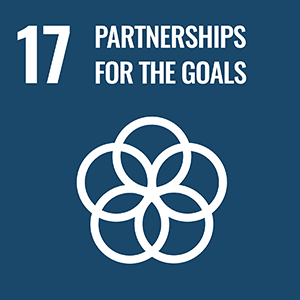CASSIOPEIA: soCial ASSIstive robOts dePloyEd in the service professIons
Background and goals
Arcada has been building expertise related to AI-driven systems such as social and service robots for some years (Tigerstedt, Biström, 2021). Furthermore, Arcada has been developing know-how with in-house open-source applications for inclusive Human-Robot interaction, for example, integrating the Swedish-Finnish language solution for healthcare environments (Espinosa, 2021) and computer vision uses for social distancing (Majd et al., 2021).
At Arcada, the work with social and service robot solutions and use cases have been tested more or less in house and with some end users for the past two years. This means that Arcada, with gathered experience, is now ready to involve a new partner and take the testing and development to the next level and closer to the end-users and real-life context.
Goals:
• It is a project aiming at concrete AI-driven digital solutions for developments within the service sector.
• The research part will have a particular interest in the Nordic context and developments within and, when possible, involve collaborators from this area.
Objectives and benefits
• It is a project that promotes sustainability and mainly the sustainable development goals 8, 9 and 11: 1) it has an inclusive approach to AI and service development 2) it intends to help humanity and humans, i.e., create solutions that help end-users: service providers and clients 3) it wants to increase knowledge of and understanding for today's technological solutions (incl.AI driven solutions) 4) it requires and drives innovation among project partners.
• It strengthens the collaboration with Prakticum and opens for new partnerships and an extended network.
-One of the goals of this research project is to find the intersection between the problems that need to be solved in restaurant and elderly care environments and the capabilities of modern, low-cost humanoid robots. We plan to study and explore methods to adapt available digital tools that can be implemented in these machines to the needs of the two mentioned service areas, especially with respect to the Finnish-Swedish language community. Another aim is to understand to what extent customers can adapt to the service robots, changing their own behavioral patterns and learning the available human-machine interaction interface.
Results
Intangible goals:
• Increase knowledge about social and service robots (or, in general, about AI-driven systems) in the organisations and among collaboration partners.
• Increase knowledge about social and service robots as well as concrete skills (or in general about AI-driven systems) among the involved groups of students (and staff).
• Increase knowledge about social and service robots (or in general about AI-driven systems) on the broader society due to events and dissemination activities.
• Strength cooperation between Arcada and Prakticum.
• New collaborations in the surrounding society
• Future proof education at both ends
Societal impact
- This project proposes to address several aspects of the use of robots in the service profession from different perspectives:
• Increase the know-how in end-user interaction with robots.
• Explore possibilities and challenges with AI-driven systems in professional services.
• Study misconceptions from the user and co-worker perspective and the possible strategies to overcome the reluctance to adopt AI-driven systems in professional services.
It is a project that promotes sustainability and mainly the sustainable development goals 8, 9 and 11: 1) it has an inclusive approach to AI and service development 2) it intends to help humanity and humans, i.e., create solutions that help end-users: service providers and clients 3) it wants to increase knowledge of and understanding for today's technological solutions (incl.AI driven solutions) 4) it requires and drives innovation among project partners.
Abstract
Academic institutions, more importantly, the ones in charge of training the future service professionals, need to make an effort to bring cutting-edge technologies such as bots closer to professions, different professional groups, and end-users. For this aim, this project proposes to address several aspects of the use of robots in the service profession from different perspectives:
• Increase the know-how in end-user interaction with robots.
• Explore possibilities and challenges with AI-driven systems in professional services.
• Study misconceptions from the user and co-worker perspective and the possible strategies to overcome the reluctance to adopt AI-driven systems in professional services.
Sustainable development goals






